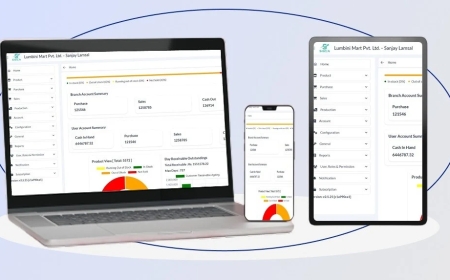What documents are required to sell a commercial property in Qatar?
Selling a commercial property in Qatar involves a structured process regulated by both legal and administrative requirements. These requirements ensure a transparent and secure transaction for both the seller and the buyer. One of the critical steps in this process is gathering and presenting the correct documentation. Missing or incorrect paperwork can delay the sale or even void it. This article outlines the essential documents needed to sell a commercial property in Qatar and explains their purpose in the transaction.
1. Title Deed
Issued by the Ministry of Justice in Qatar, it legally confirms the current owner of the commercial property. Without this document, the seller cannot prove ownership, making a sale legally impossible. The title deed includes details such as the propertys exact location, plot number, land area, and building classification. In some cases, this document also reflects any mortgages or financial claims against the property.
2. Building Completion Certificate
This certificate is issued by the municipality after construction is complete and all building requirements have been satisfied. For commercial properties, this includes compliance with safety codes, parking regulations, structural standards, and zoning laws. A buyer will need this to ensure that the property is legally fit for commercial use. It also verifies that the building matches the approved plans submitted at the time of construction.
3. Recent Utility Bills and Clearance Certificates
The seller must provide recent utility billselectricity, water, cooling, and in some cases, telecom servicesto show that there are no outstanding dues on the property. In addition to the actual bills, clearance certificates from utility providers such as Kahramaa (Qatar General Electricity & Water Corporation) are often required. These confirm that all payments are settled up to the date of sale. This is important to prevent the new owner from inheriting any unpaid charges.
4. Property Valuation Report
An up-to-date valuation report conducted by a certified real estate valuator is crucial in a commercial transaction. This report provides a detailed analysis of the market value of the property based on factors such as location, property condition, market trends, and rental yield. Buyers use this information to negotiate price, while banks may require it for financing purposes. The valuation report enhances transparency and builds trust between parties.
5. Trade License and Commercial Registration (for Sellers Company)
If the seller is a corporate entity rather than a private individual, they must submit a valid trade license and commercial registration. These documents are issued by the Ministry of Commerce and Industry in Qatar and confirm the legal existence of the business selling the property. This ensures that the company is authorized to own and sell real estate assets.
6. No Objection Certificate (NOC)
A No Objection Certificate may be required from various authorities depending on the propertys location and type. For instance, if the commercial property is located in a development governed by a master developerlike The Pearl Qataran NOC from the developer may be necessary. This confirms that the seller has fulfilled all obligations, such as service charges or maintenance fees. It also ensures that the sale does not violate any community guidelines. The Pearl Qatar, a prime real estate area, imposes strict property transfer rules that include developer clearance.
7. Tenancy Contract and Rental Income Proof (if leased)
If the commercial property is currently leased, the existing tenancy agreement must be disclosed. This contract informs the buyer about the tenant's legal rights and rental terms, including lease duration, monthly rent, and renewal conditions. Alongside this, proof of rental income such as bank statements or receipts helps buyers assess the investment return potential. This is especially relevant for those purchasing the property as an income-generating asset.
For those considering a similar investment route, reviewing things to consider before buying a studio apartment in Qatar can offer insights into tenant management and leasing laws.
8. Land and Property Survey Map
This map is essential in commercial transactions to avoid disputes over land size, encroachments, or boundary issues. It can also show access points, parking allocations, and utility easements, all crucial in commercial use cases.
9. Identification Documents
Both the buyer and seller must submit identification documents for the transaction. For individuals, this typically includes a valid Qatar ID or passport. For companies, corporate ID documents such as the establishment card and authorized signatory documents must be submitted. These help authenticate the parties involved and are necessary for contract drafting and property title transfer.
10. Sales and Purchase Agreement (SPA)
Though technically drafted as part of the sale process, the Sales and Purchase Agreement is a required legal document that outlines the terms of the transaction. It includes the agreed price, payment schedule, property specifications, and obligations of both parties. It is often prepared by a legal expert or real estate broker familiar with Qatari property laws. Signing the SPA initiates the formal sale process and sets the terms under which the title transfer will occur.
In high-value markets like Qatar, where international investors are active, clear legal contracts like the SPA are especially critical. Understanding the average living expense in Qatar can also help potential buyers make informed investment decisions in commercial real estate based on operating costs and consumer spending power.
11. Mortgage Clearance Certificate (if applicable)
If the property was purchased using a bank loan, the seller must obtain a mortgage clearance certificate from the lending bank. This confirms that the mortgage has been fully repaid or that the outstanding balance will be settled as part of the sale. Without this clearance, the title cannot be transferred. In some cases, the bank may also issue a conditional NOC if the buyer agrees to assume the mortgage under new terms.
12. Power of Attorney (if applicable)
In situations where the seller cannot be physically present in Qatar, a notarized Power of Attorney must be presented. This document authorizes another individual or representative to complete the transaction on their behalf. It must be authenticated by the Ministry of Foreign Affairs and, if drafted abroad, may also require embassy legalization. For corporate entities, board resolutions or signatory authorizations may also be required in addition to the POA.
Final Considerations
Selling a commercial property in Qatar involves more than just finding a buyer. Its a regulated process that relies on accurate, complete, and verified documentation. Failing to prepare any of these documents can delay or even nullify the transaction. Sellers should consult with legal professionals or licensed brokers who are familiar with Qatari property law and can guide them through each requirement. Understanding the regulations and expectations not only protects the sellers interests but also fosters a transparent and trustworthy transaction environment.
As Qatar continues to expand its real estate market, particularly in high-demand areas like The Pearl, Lusail, and West Bay, the complexity of transactions increases. Staying updated on regulatory changes is crucial. For context on the dynamic living environments in Qatar, you can explore best places to live in Qatar to understand how location affects both residential and commercial property value.
For further reading about Qatar's legal framework and property rights, visit external references such as Wikipedia's page on Qatar and Real estate in Qatar. These provide general background helpful for both foreign and local investors.
Every document plays a specific role in securing the legal, financial, and operational interests of both parties. Preparing them in advance streamlines the selling process and avoids costly delays.




























